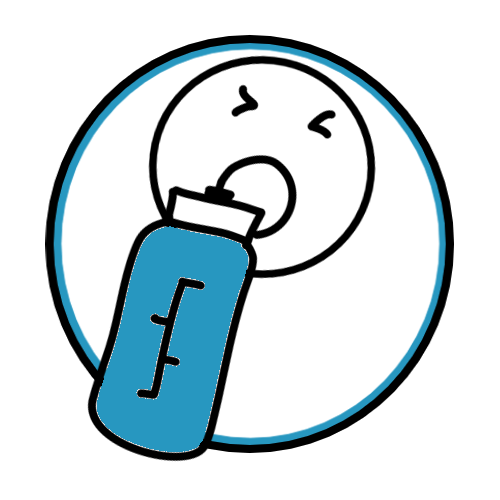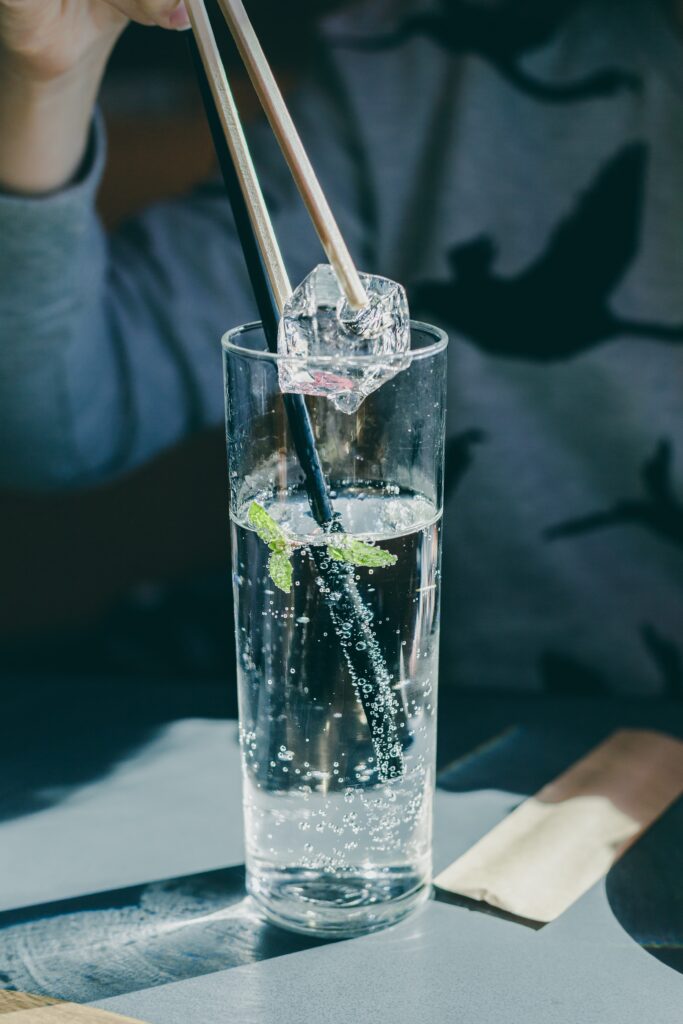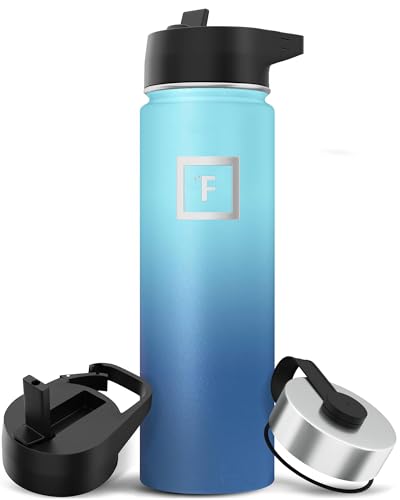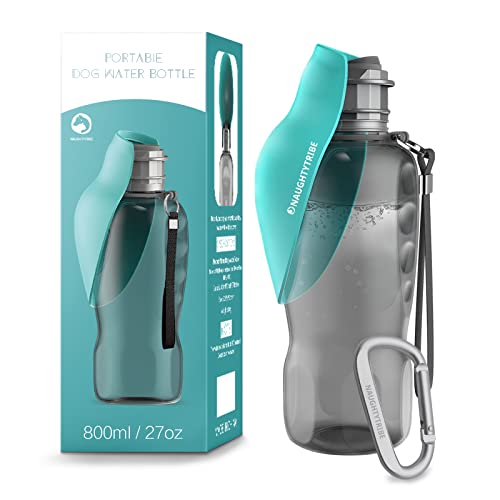I usually don’t drink anything else but water. I especially love a glass of bubbly water after a good meal. I was wondering though, what would happen if all I drank was sparkling water, and how does it affect the body in some specific situation? Is it good for hydration? Or is it bad for you, after all? I asked the Internet a bunch of questions about it, and here’s what I found out.
This post contains affiliate links and I earn a commission from qualifying purchases at no cost to you. Thanks for your support!
- Does It Hydrate You Like Regular Water?
- Is Drinking Sparkling Water Everyday Bad For You?
- Is It Bad For Diabetics?
- Is It Bad For GERD or Acid Reflux?
- Is It Bad For IBS?
- Is Sparkling Water Bad For Sore Throat?
- Is Soda Water Unhealthy?
- Is Seltzer Water Unhealthy?
- Is Sparkling Water Okay to Drink While Pregnant?
- Is Bubbly Water Okay For Dogs?
- Is Sparkling Water Good For Hangover?
Does It Hydrate You Like Regular Water?
In general, sparkling water does hydrate the same as regular water. Both sparkling and regular water primarily consist of water molecules. The human body absorbs water regardless of whether it is bubbly or not.
Bubbly water can be a great alternative for those who find plain water tasteless, unappealing, or simply boring. The effervescence and slight acidity of sparkling water can make it more enjoyable to drink, encouraging increased water consumption. Keep in mind though, the sensation of fullness or bloating caused by the bubbles might actually lead you to drink less fluid than you would if it was plain water.
So, yes, sparkling water hydrates like water, if you drink enough.
However, if you have specific hydration needs or any health concerns, make sure you consult your medical provider or a registered dietitian and ask for their opinion and guidance on your hydration practices.
Is Drinking Sparkling Water Everyday Bad For You?
Usually, drinking sparkling water daily is not bad for you. But there are a few things that can make it potentially risky. I wrote about the hydration aspect above. Let’s see what else to pay attention to.
If you drink sparkling water or any carbonated beverages, you may experience bloating, gas, or digestive discomfort. This could be due to the carbonation which can make gas build up in the stomach or intestines. If such symptoms cause you trouble, you might want to drink a little less sparkling water.
Always check the label of the sparkling water of your choice to know its mineral content. Some types of sparkling water have added minerals in them, such as sodium or potassium bicarbonate, to enhance flavor and provide a slight electrolyte boost. These minerals are generally not harmful in moderate amounts, but individuals with specific health conditions (like high blood pressure or kidney issues) might need to be cautious about their mineral intake.
Speaking of minerals, some research suggests that the phosphoric acid in carbonated beverages might slightly affect calcium absorption in the body. This might lead to bone health concerns, but the effect is usually quite small and unlikely to cause significant problems. Anyway, make sure you have a balanced diet rich in calcium!
Last but not least, dental health needs to be mentioned. If sparkling or carbonated water is consumed excessively, it can possibly weaken tooth enamel over time. Being slightly acidic due to the presence of carbon dioxide might increase the risk of dental issues. Try to not replace regular water with sparkling exclusively, and make sure you maintain good dental hygiene practices!
Is It Bad For Diabetics?
In general, sparkling water is a good option for people with diabetes (or insulin resistance like myself), as long as it doesn’t contain added sugars or excessive carbohydrates. As I mentioned above, always check the ingredient label of the product you are about to drink to make sure you know what you consume, and how it may affect your blood sugar levels.
Another thing for people with diabetes to take into account is meal planning and portion control. Individual responses vary, but sparkling water might cause the sensation of unusual fullness, bloating, or other gastrointestinal discomfort, which can affect the overall food intake and hydration.
If you are not 100% sure, consult your dietitian or healthcare provider to see how carbonated drinks fit into your diet.
Is It Bad For GERD or Acid Reflux?
Unfortunately, yes, any carbonated beverage can potentially worsen gastroesophageal reflux disease and acid reflux symptoms in some individuals. The effects can vary from person to person, but sparkling or soda water might not be the best choice if you have acid reflux.
We talked about it already, the carbonation can lead to the release of gas in the stomach. Also, the process can create carbonic acid which can be irritating. These definitely can exacerbate the reflux symptoms (such as heartburn and discomfort), by making the stomach expand and potentially push stomach acid up into the esophagus.
So, while some people with GERD or acid reflux have no problem, some may find that soda water or carbonated drinks trigger their symptoms (feelings of fullness, bloating, discomfort, or heartburn). Watch the reaction of your body to sparkling water and if you notice that it triggers or worsens your acid reflux symptoms, consider other hydration options instead of carbonated beverages.
Is It Bad For IBS?
Whether drinking sparkling water is OK or bad for your IBS depends on your individual sensitivity to carbonation, specific triggers, and your overall comfort. If you find that any carbonated beverages worsen your symptoms (such as bloating, gas, digestive discomfort), you might want to limit your intake. Always pay attention to your body’s response to anything you consume!
If you’re unsure about how sparkling water might impact your IBS symptoms specifically, discuss it with your healthcare provider who is familiar with your condition.
Is Sparkling Water Bad For Sore Throat?
Generally, it is not bad for a sore throat, but as always, I have to mention that individual experiences can vary.
Some people don’t find it a bother, but the carbonation in the sparkling water might cause a fizzy sensation in your throat, which could potentially be uncomfortable if your throat is sore already. Cold or room-temperature sparkling water might be more soothing on your sore throat than very cold or very hot beverages.
Listen to how your body responds to it whether you have a sore throat or not.
If the carbonation or any additives (such as minerals, sweeteners, or flavors) in the sparkling water cause you any discomfort, stick with plain, regular still water (in the specific case of a sore throat, perhaps some soothing beverages like herbal teas). If you’re uncertain, first try taking only small sips of sparkling water and pay attention to how it affects your throat.
For appropriate advice and treatment of your sore throat, please consult a medical professional!
Is Soda Water Unhealthy?
Soda water is carbonated water with a slightly salty taste due to some form of minerals or salts added to it. These minerals can include sodium bicarbonate (that’s where the term “soda water” comes from; these days soda water can be carbonated using carbon dioxide gas too) or potassium bicarbonate.
The usually small amounts of added minerals in soda water shouldn’t significantly impact health. Check the label of the soda water of your choice (or make your own soda water at home) to make sure you can make informed decisions regarding your sodium intake.
Is Seltzer Water Unhealthy?
Well, seltzer water is typically just carbonated water, without any added minerals or flavors. It’s produced by carbonating plain water using carbon dioxide gas and is often considered the simplest form of carbonated water.
Plain seltzer water without any added flavors or sweeteners is considered a calorie-free and sugar-free beverage and, therefore a good hydration option. Just in case, take a look at the Is Drinking Sparkling Water Everyday Bad For You? section of this post and make sure you listen to your body.
If you experience any discomfort or weirdness, opt for drinking plain water and consult your healthcare provider for guidance.
Is Sparkling Water Okay to Drink While Pregnant?
Drinking sparkling water during pregnancy is generally considered safe for most pregnant women.
It can be a refreshing change from plain water and make it easier for some to meet their daily hydration needs which is extremely important while expecting. Most sparkling waters are calorie-free and do not contain added sugars, which makes them a good hydration choice for anyone who wants to avoid excessive calorie intake and added sugars.
There are some cons to sparkling water though that’s good to keep in mind:
During pregnancy, some of you might already experience gas and bloating due to hormonal changes and the pressure from the growing uterus. The carbonation could potentially make these discomforts worse.
Thanks to the same hormonal changes and pressure of the growing baby on the stomach, pregnant women are more prone to acid reflux which can get worse too by the carbonation.
Also, pregnancy can bring about changes in taste preferences and sensitivities, therefore some pregnant women might find that the taste or sensation of carbonated water is less appealing.
Finally, some sparkling waters contain small amounts of added minerals or sodium bicarbonate for flavor enhancement. Always check the label for mineral content if you’re concerned about sodium intake!
If you have specific health conditions or concerns during pregnancy (or in general), discuss your dietary choices with your healthcare provider, so they can provide personalized advice based on your individual needs and medical history.
Is Bubbly Water Okay For Dogs?
Technically, dogs can drink small amounts of plain, unflavored sparkling water, but it’s generally not recommended to make it a regular part of their diet.
The carbonation can lead to gas, bloating, and digestive discomfort in dogs too, just as it does in humans. Many commercially available sparkling waters contain additives (such as artificial sweeteners or flavors) that can be harmful to dogs. For example, a common sugar substitute xylitol, is particularly toxic to dogs and can lead to severe health issues. Also, certain dog breeds are prone to a condition called gastric dilatation-volvulus (GDV), which is a potentially life-threatening condition (the stomach basically twists and fills with gas) and carbonated beverages can increase the risk due to the gas content.
So, to be on the safe side, the primary source of a dog’s hydration should be fresh, clean, plain water.
Is Sparkling Water Good For Hangover?
It’s not a guaranteed remedy and might have limitations, but here’s how it can potentially help with some aspects of a hangover:
Alcohol usually leads to dehydration, which contributes to many hangover symptoms. The carbonation might make it more appealing than plain water, so it can provide sufficient hydration even when nausea hits.
Also, the fizzy sensation might help settle an upset stomach or provide a refreshing feeling when you’re feeling queasy after consuming alcohol.
Sugary beverages can worsen blood sugar fluctuations and contribute to hangover symptoms, so choosing unsweetened sparkling water can help you avoid that.
While sparkling water might help with hydration and provide some relief, it’s not a comprehensive solution to all hangover symptoms, especially not to those related to alcohol’s impact on the body and metabolism.
Conclusion
So, is carbonated water good or bad for u? We can say that carbonated water, sparkling water, soda water, or seltzer offer a refreshing hydration alternative to plain, regular water. You always have to consider your individual preferences, needs, and conditions, but when consumed in moderation, bubbly water can be a healthy and enjoyable addition to your beverage choices.
Cheers!
Featured image credit:
Photo by Jamie Street on Unsplash
Shop Related Products:
Related posts:
Best Water Bottle For Carbonated Drinks
Fizz Fears: Investigating PFAS In Sparkling Water
Is Drinking Salt Water Good For You?
Can You Drink Sparkling Water While Fasting?



























